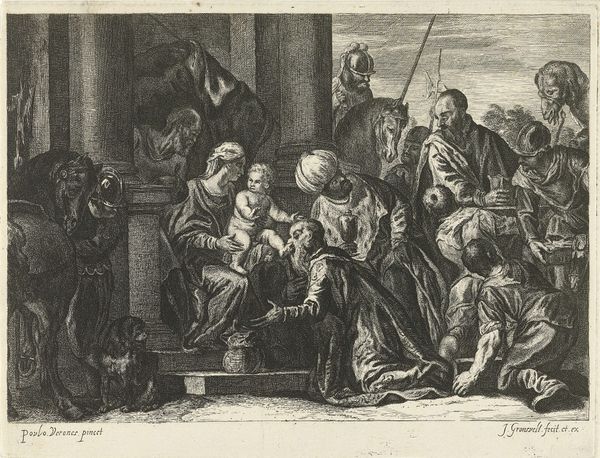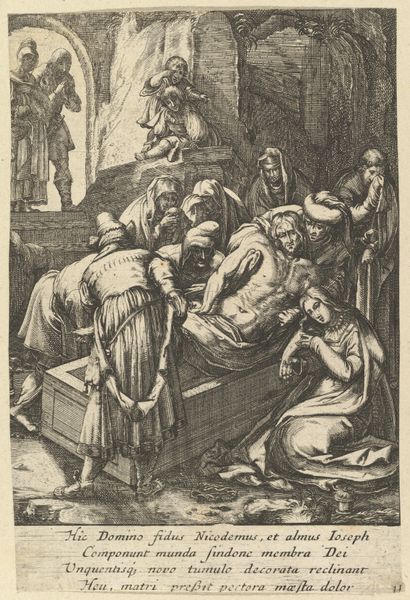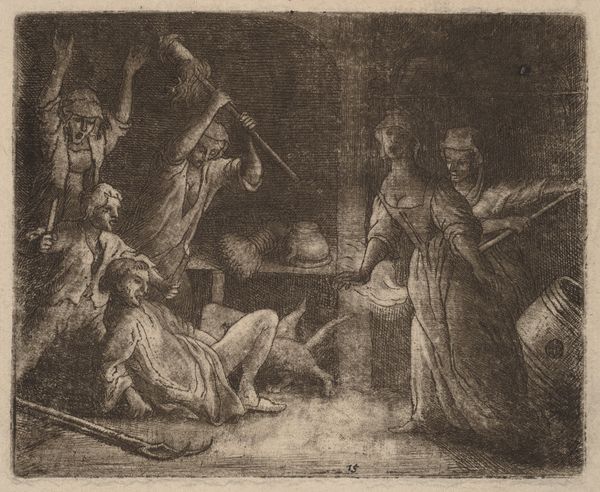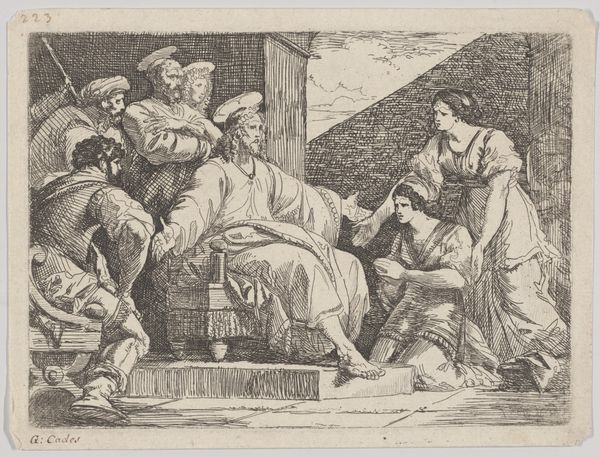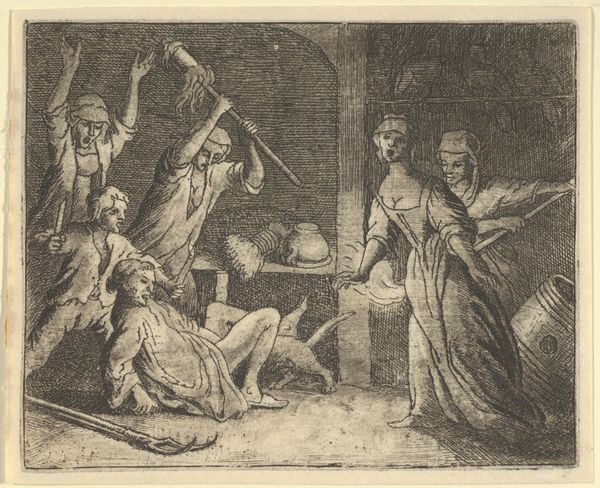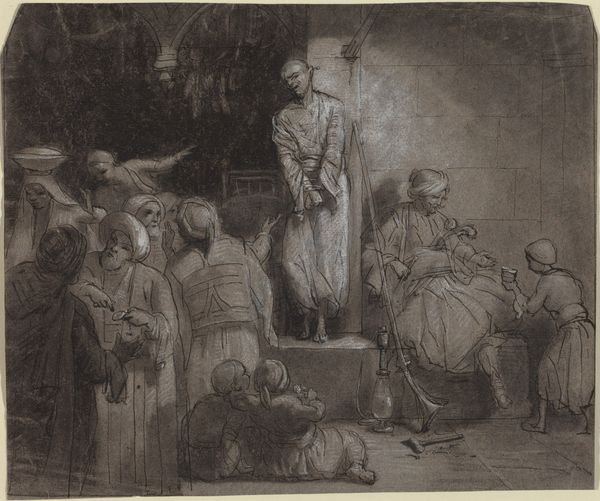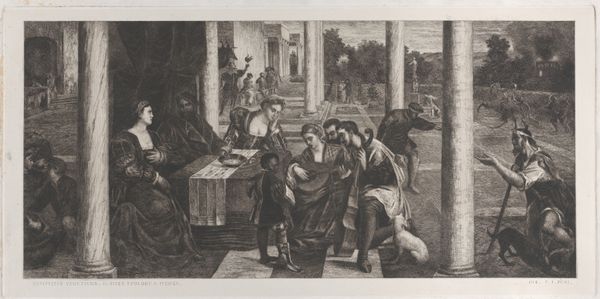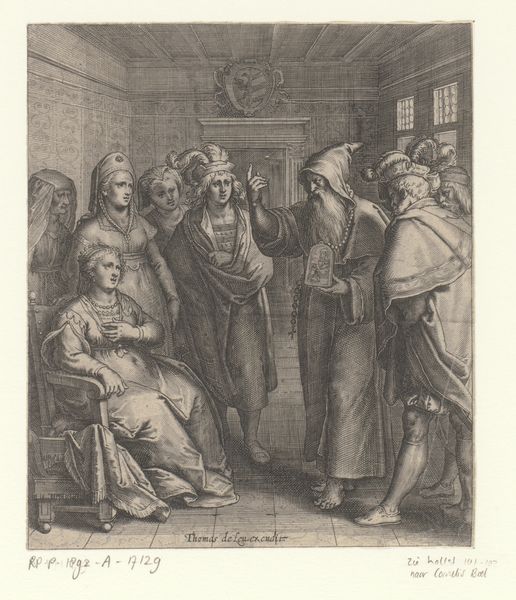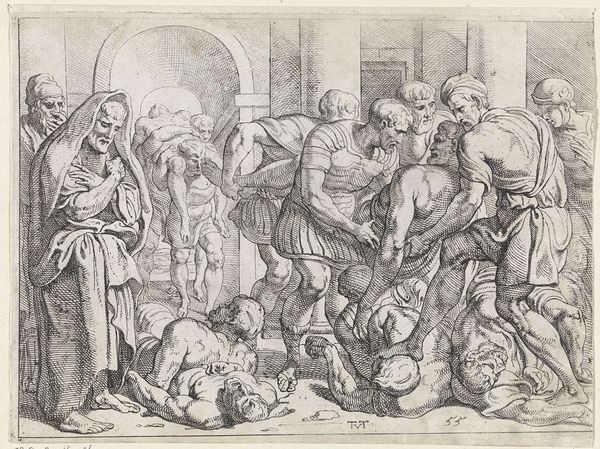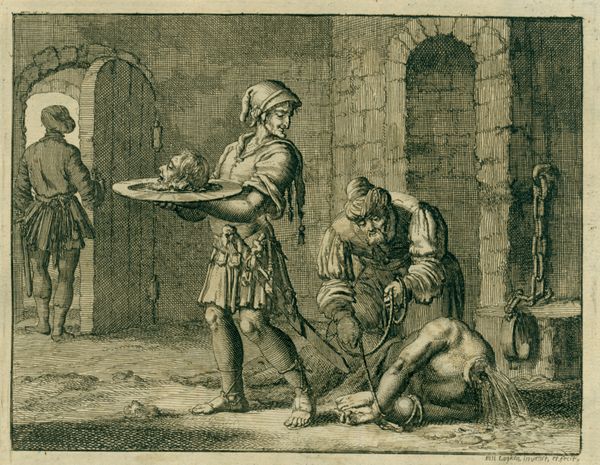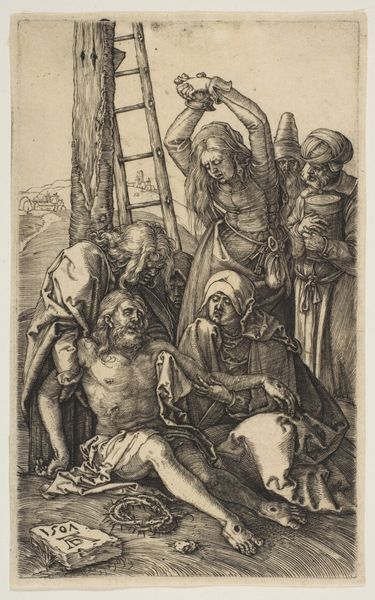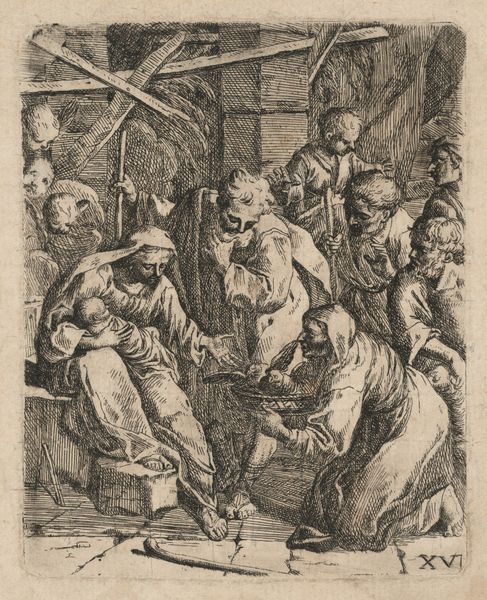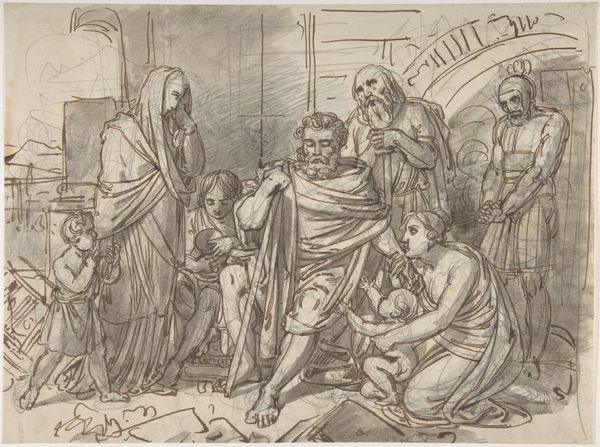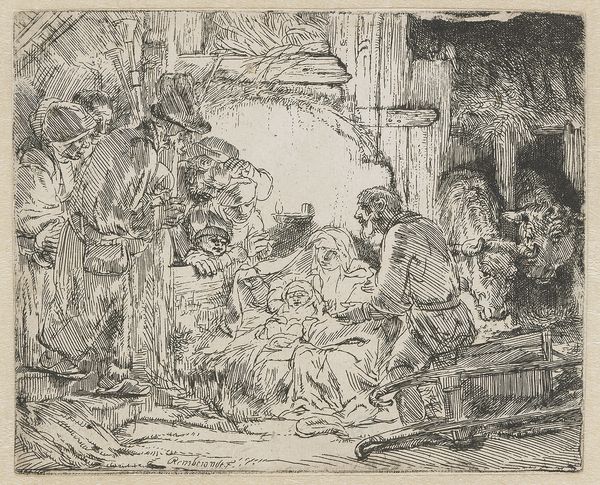
drawing, print, etching, charcoal, engraving
#
portrait
#
drawing
#
narrative-art
# print
#
etching
#
charcoal drawing
#
figuration
#
pencil drawing
#
coloured pencil
#
line
#
portrait drawing
#
genre-painting
#
charcoal
#
engraving
#
realism
Copyright: National Gallery of Art: CC0 1.0
Curator: Look at this etching by Alphonse Legros, called "Beggars of Brussels". I find it quite striking, wouldn’t you say? A powerful group portrait that speaks volumes. Editor: It hits you like a storm, doesn't it? That crowd pressing in, all dark shadows and yearning. Gives you this cramped, almost claustrophobic feeling just looking at it. So immediate and raw. Curator: Legros, despite being closely associated with the Impressionists, maintained this commitment to social realism. These aren’t romanticized figures; he captures a stark depiction of poverty, of communal dependence on alms. The very composition drives home that point, forcing us, the viewers, into their space. Editor: Yes! I get this intense sense of community mixed with individual suffering. The way everyone is clustered, yet each face is a story of its own kind of hardship. It reminds me a bit of a stage play almost with figures strategically placed. The old woman extending her hands almost pleads directly to us. And look at the kid clinging to her skirts – vulnerable, relying completely on her… it's so emotionally charged. Curator: And note the medium itself. Etching, with its linear emphasis and the capacity for deep shadows. He uses it to sculpt the figures from the darkness, so to speak, further emphasizing the grimness. It certainly invites broader questions about poverty and charity in rapidly industrializing societies. Editor: Absolutely. It makes you think about systems, doesn't it? Who creates these conditions, and what responsibilities do we have as a society. Makes you question if offering individual help fixes any problem at all, really, doesn't it? Curator: Precisely. And in bringing this issue into art, legitimising such subjects as valid and worthy of attention, Legros prompts questions around what role art might have in effecting social change. Editor: Yeah, it's one of those pieces that digs its way into your thoughts. You look at their faces, those extended hands, and you wonder if much has actually changed since he captured them with his needle and acid. It’s a piece you don’t easily shake off, which makes it good, right? Curator: It's powerful, and enduring. Legros offers a starkly affecting lens into 19th-century realities, sparking questions still highly relevant today.
Comments
No comments
Be the first to comment and join the conversation on the ultimate creative platform.
